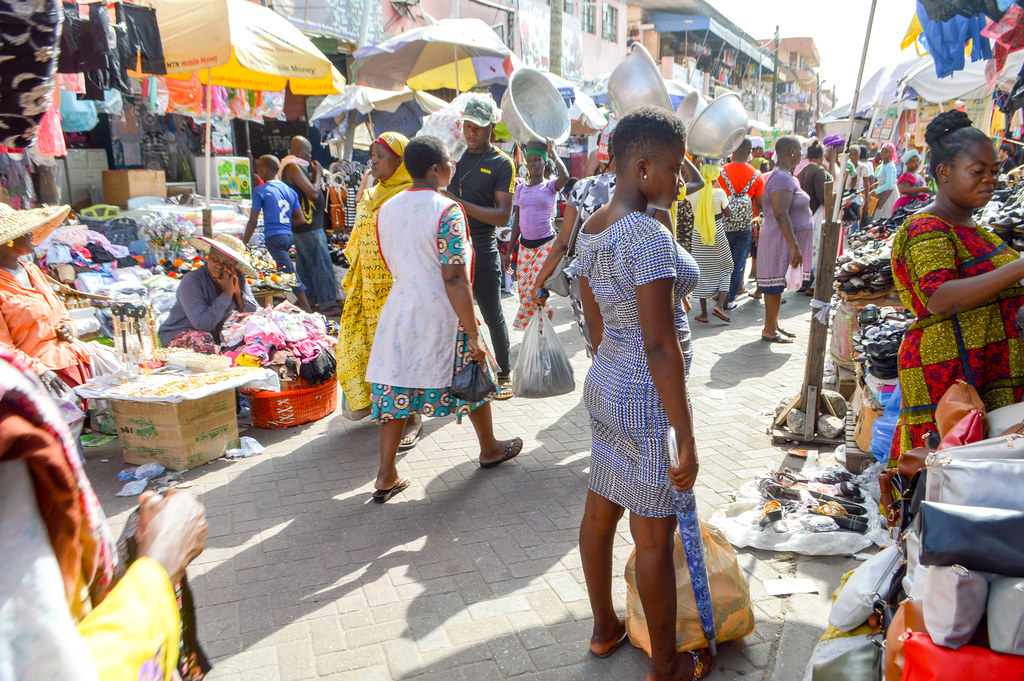A Golden Safari: Investing in Tanzanian Markets

Elephants. Giraffes. Lions. What do these have to do with investing in Tanzania? Answer: They are an important metaphor for understanding the Tanzanian markets today.
Many travellers come from around the world each year to go on safari in Tanzania. They come to see the amazing animals and beautiful landscapes. It is truly an unforgettable experience. However, few of these visitors, if any, take the opportunity to understand what Tanzania’s human side has to offer, in other words to understand the country as an investable market. How many investors would benefit from doing just that?
Safari, in Swahili, means journey. In this post, the Tanzanian market for investment is presented as a “golden safari.” Just as in a Tanzanian safari journey you need to take the time to look around to find majestic animals while being immersed in spectacular surroundings, so too in a Tanzanian investing journey you need to take the time to understand the wider environment in order to spot the gems of prospective investments.
The Tanzanian Market at Large
What makes the Tanzanian market so attractive to investors? Tanzania is a large and growing East African market. It has a relatively large population estimated to be 70 million people, making Tanzania the 21st largest country in the world by population, larger than South Africa (which receives much more attention in the news these days) and slightly smaller than Italy. Importantly, Tanzania has a very young, urban and growing population. The median age in Tanzania is 17.5 years and 40% of the population is urban.
In addition to its large population, Tanzania reached an important milestone in July 2020, when it formally graduated from being a low-income country to lower-middle-income country status, unlike many of its peers in the region. Tanzania has an ambitious industrialization plan to transform into a middle-income economy by 2030. Tanzania’s achievement reflects sustained macroeconomic stability that have supported growth as well as the country’ s rich natural endowments and strategic geographic position.
Tanzania has benefited from a relatively stable political environment and reasonable macroeconomic policies that has allowed it to maintain sustained 6 to 7% growth rates since 2000. Key sectors include agriculture, mining (particularly gold), and tourism; top exports are gold, refined petroleum, and dried legumes, while major imports include refined petroleum, wheat, and vehicles. Tanzania’s main trading partners are China ($4,960 million total trade), India ($2,313 million), the European Union (EU) ($1,542 million) followed by Kenya, South Africa and the U.S. in 6th position with $367 million.
Strong points of investing in Tanzania include:
- High economic growth potential (the GDP growth over the last 10 years is around 7%, one of the fastest growing economies in Africa);
- Increasing economic stability (inflation down from 16% in 2012 to 4% in 2018)
- Rich natural resources (arable land and mineral subsoil);
- Strategic location (the country is a gateway to six landlocked countries – Uganda, DRC, Rwanda, Burundi, Zambia and Malawi);
- Three deep water ports that serve neighbouring countries;
- Access to Southern African Development Community free trade market;
- Political stability (the country has not experienced any conflict or civil war since gaining independence).
What this means for both startup small businesses and investors alike is that Tanzania is uniquely positioned in Africa for business growth. From a startup small business’ point of view, there are many needs and wants to be filled in Tanzania’s changing market with the right toolkit and mindset. From an investor’s point of view, finding and investing in these startup small businesses can be a very lucrative endeavor.
So how does Tanzania’s capital market work (or not work) to connect startup small businesses and investors?
The Tanzanian Capital Market: Foreign Direct Investment
Tanzania has a tremendous need for long-term financing for small-to-medium sized enterprises (SMEs) capital investment, based in part on the market considerations discussed above as well as export opportunities. However, there is an equally tremendous disjunction between the types of financing currently available and the types of financing SMEs need, as well as some important hurdles to both types of financing.
Let’s start with some common hurdles to investing in Tanzania. The Government of the United Republic of Tanzania welcomes foreign direct investment (FDI). But investors commonly cite some obstacles to investing in the country, many of which are being actively addressed by the Government (see below).
These difficulties include regulatory bureaucracy, land acquisition and ownership, logistics and infrastructure inefficiencies, and investment facilitation coordination. Investors and potential investors note the biggest challenges to investment include difficulty in hiring foreign workers, unfriendly and opaque tax policies, increased local content requirements, regulatory and policy instability, lack of trust between the Government and the private sector, and mandatory initial public offerings (IPOs) in key industries.
Both the government and private sector are aware of these ongoing challenges and are actively addressing them. President Samia Suluhu Hassan has prioritized sustainable economic growth at the forefront of the administration’s policies, strategies, and goals. The designation of 2024 as the Year of Investment, coupled with Tanzanian Investment Center’s active participation in various forums, reflects a strategic push to attract significant investments into the country. Notably, a new Tanzania Investment Act was passed and enacted in 2022, introducing reforms broadly intended to create a more favorable investment environment for domestic and foreign investors.
Tanzania is one of the most preferred destinations for foreign investment in Africa, ranking among the 10 biggest recipients of FDI on the continent. According to U.N. Trade and Development’s World Investment Report 2023, FDI to the United Republic of Tanzania increased by 8% to USD 1.1 billion, from USD 1 billion one year earlier.
Foreign investors generally receive treatment equivalent to domestic investors, though limits persist in a number of sectors. There are no geographical restrictions on private establishments with foreign participation or ownership, no limitations on the number of foreign entities that can operate in any given sector, and no sectors in which approval is required for FDI but not for domestic investment.
Inflows of FDI were concentrated in three main activities: mining and quarrying, manufacturing, and finance and insurance, which together accounted for 90.8 percent of total inflows in 2021. This indicates that the vast majority of Tanzania’s capital markets are currently concentrated in capital intensive industries requiring large amounts of capital for large businesses, not SMEs. This is precisely the disjunction mentioned above, one which affects SMEs negatively but for this very reason presents significant opportunities for investors to meet their capital needs and reap the rewards. A truly golden safari.
A recent report released in March 2024 by Moody’s Ratings, upgraded the government of Tanzania’s long-term issuer ratings to B1 from B2 and changed the outlook to stable from positive. This move is reflective of Tanzania’s market characteristics discussed above as well as the performance of its capital markets, including FDI.
Financial Sector Considerations and Conclusion
Tanzania has an established and robust financial sector, but one that primarily serves individuals and large investors rather than SMEs. The Tanzanian financial sector includes the banking, microfinance, insurance, capital markets and social security sub-sectors. There is also a stock market in Dar es Salaam, Tanzania’s commercial center. Also of note is the growing importance of fintech in Tanzania, as in all of Africa.
The Tanzanian financial sector remained sound and stable in terms of capital adequacy, asset quality, liquidity, and profitability despite volatility in the global financial environment. As a result, the financial sector was resilient to internal and external shocks, with capital and liquidity levels remaining above minimum regulatory requirements in recent years.
However, this vibrancy in the financial sector does not suffice to put the gold in Tanzania’s golden safari, despite the importance of Tanzania’s market at large and the significance of its capital markets, as we have seen in this post. To make Tanzania’s investing safari golden requires private investors to invest in startup small businesses, because so few investors are doing so, and for startup small businesses to meet their challenges.
In our next post, we will move from an overview of investing in Tanzanian markets to a closer examination of how financing SMEs works in Tanzania.
